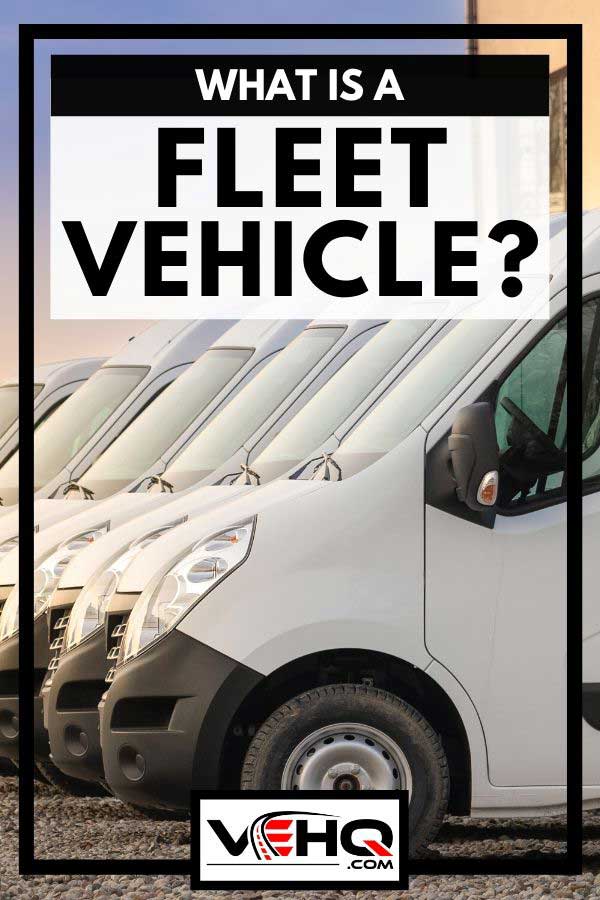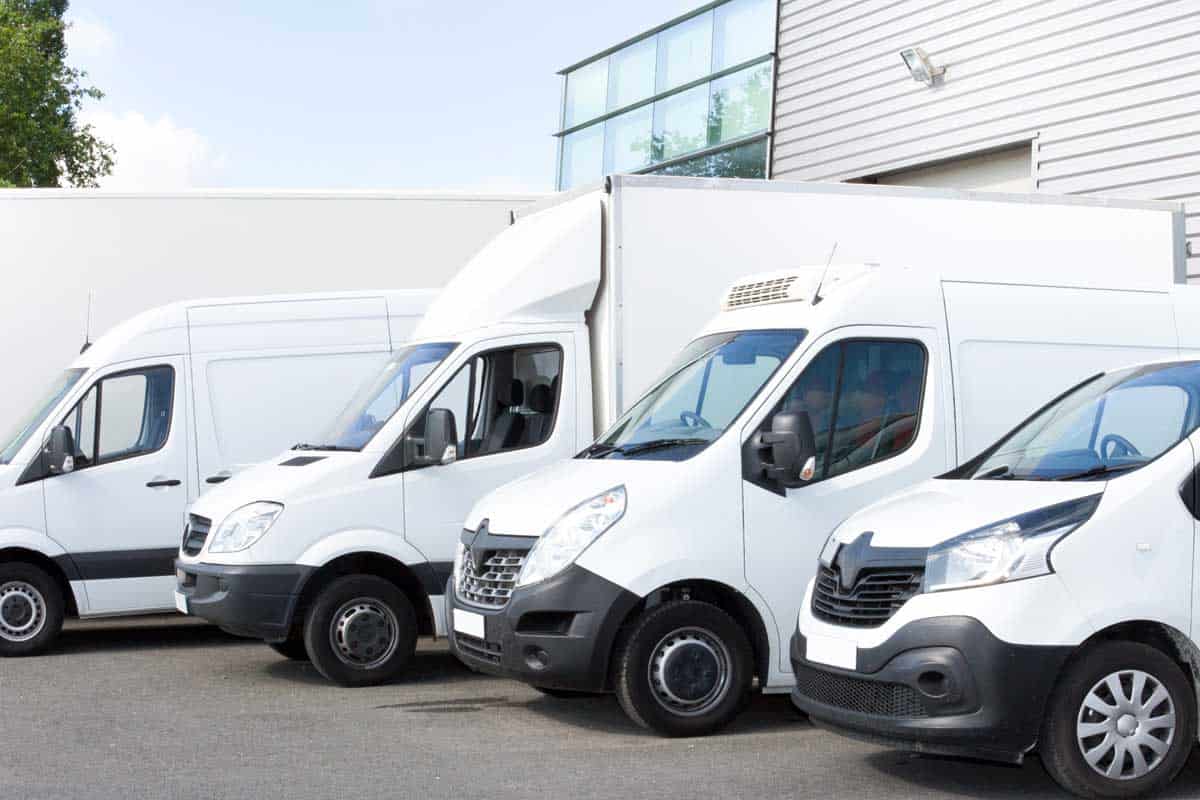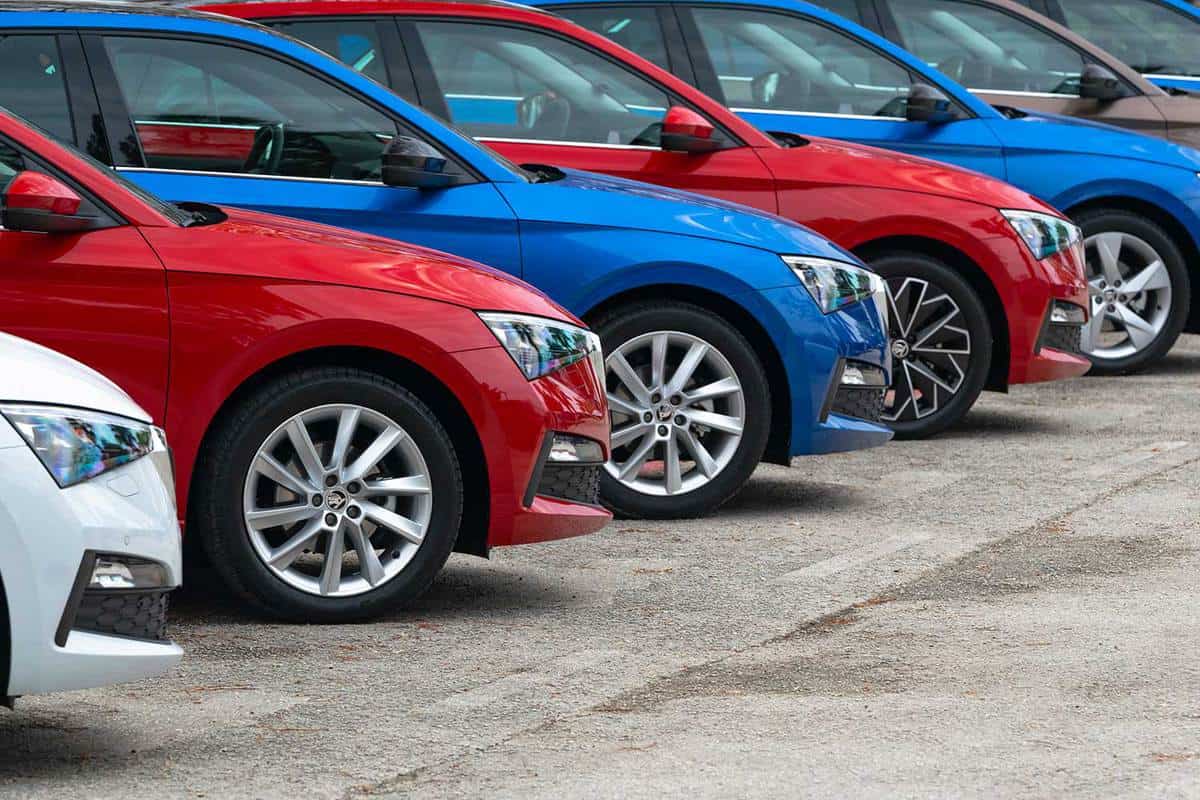 Buying a used car can be quite an adventure. One of the few things people get confused by is coming across vehicles considered "a used fleet vehicle" during their search. It often leaves people to wonder what exactly fleets vehicles are? We did some vital research and found an answer to give you insight into this question.
Buying a used car can be quite an adventure. One of the few things people get confused by is coming across vehicles considered "a used fleet vehicle" during their search. It often leaves people to wonder what exactly fleets vehicles are? We did some vital research and found an answer to give you insight into this question.
Fleet vehicles are groups of vehicles leased or owned by a government agency, business, or other organizations instead of a family or singular person. For instance, vehicles owned and operated by taxicab companies, police departments, car rental companies, and similar organizations.
If you're still a little confused, we're going to provide seven examples of companies that use fleet vehicles. We'll also discuss several other questions related to fleet vehicles in our following sections. These discussions will help you decide whether buying one of these cars or trucks would be a good decision.
The Top Seven Organizations Using Fleet Vehicles
These seven companies and organizations are known to use fleet vehicles for work purposes. They happen to be the businesses that use them the most in the entire United States. Their purpose could be transporting products, doing construction work, or driving paying passengers. We'll discuss each company/organization to outline how many and what vehicles these companies own.
1. AT&T
The largest user of these vehicles is AT&T, which owns 66,879 total. This large number is divided into them having 66,830 trucks and 49 tractor-trailers. AT&T uses its fleet to answer clients' concerns, fixing problems with the internet or telephone, and other similar issues.
2. Pepsi
Pepsi owns a little bit less than AT&T, with them having 62,400 fleet vehicles at their disposal. This company is more about transporting goods from place to place. As a result, Pepsi has more tractor-trailers, 14,300, carrying soda, and other food/drink products around the states. They still employ plenty of trucks, though, with them owning 48,100.
3. Comcast
Comcast's whole fleet of 37,000 vehicles is comprised entirely of trucks. Comcast uses these trucks for tasks like driving to their client's homes and fixing issues with their internet or cable. Therefore, these purposes don't require the need for a tractor-trailer like our previous two companies.
4. Waste Management
The fourth-place finisher, Waste Management, uses its 32,056-vehicle fleet in a much different way. This company takes on the challenge of dealing with our trash. It's a task that requires the use of 31,056 trucks and 1,000 tractor-trailers to do it effectively.
5. Verizon Wireless
Verizon Wireless has a rather impressive fleet of 20,011 vehicles. This fleet's made up almost entirely with trucks, 20,000, but Verizon does own 11 tractor-trailers. As you can imagine, these vehicles are used for driving to client appointments and fixing wireless connection issues.
6. Time Warner Cable
Like Verizon and AT&T, Time Warner Cable has a lot of clients who have problems with their internet and cable from time to time. This reality makes them need a fleet of 19,903 vehicles to help deal with these problems. Their 19,879 trucks and 24 tractor-trailers make these jobs much easier.
7. Quanta
Our last place finisher happens to be Quanta Construction. Their fleet consists of 18,920 vehicles broken up into 17,820 trucks and 1,110 tractor-trailers. Quanta's need for a lot of tractor-trailers comes from them transporting heavy equipment from construction site to construction site.
What Are Commercial Fleet Vehicles?

Commercial fleet vehicles are owned by an organization or company and designed to move large passenger groups of goods. Some examples of companies using these vehicles would be shipping companies, bus companies, and construction crews.
But you might be asking what the difference between a regular fleet vehicle and a commercial one is? The simple answer is that it'll come down to size. In other words, cargo vans or heavy-duty trucks used for transporting goods and heavy equipment would be considered commercial fleet vehicles.
Smaller fleet vehicles like a Toyota Camry wouldn't have the commercial distinction. These cars would instead be thought of as a standard fleet vehicle.
Are Fleet Vehicles a Good Buy?
Buying a fleet vehicle comes with its own set of benefits and disadvantages, like any other decision. Both sides should be taken into account before making a final choice about purchasing one. We'll outline each side below to ensure you know what's best for your situation.
Benefits of Buying a Fleet Vehicle
- Fleet vehicles from rental companies are newer: These companies are always turning over their old cars for newer models. After all, nobody wants to rent a car with a manufacturing date of several years in the past. This causes the company to sell off these "older" vehicles for reduced prices.
- The vehicle will be in good condition: Rental and commercials cars are often well taken care of and have a routine maintenance schedule to increase their longevity.
- They're cheaper: Companies using fleet vehicles are desperate to sell their older models. This situation makes them reduce the price to a lower rate than you'd see with privately-owned used vehicles.
Disadvantages of Buying a Fleet Vehicle
Resale Value Will be Lower:
People looking to resell their fleet vehicles will need to do at a lower rate than with a privately owned version of the same car. It's also worth noting that lenders won't finance one of these vehicles. Drivers with bad credit won't be able to finance them at all.
Higher Mileage:
Fleet vehicles are often used every day by more than a few different drivers. This situation causes them to have much higher mileage than you'd see with other used trucks or cars. You'll regularly see rental companies sell their cars and trucks with 25,000 to 40,000 miles after only a year of use.
Have More Wear and Tear:
Each driver has their distinct driving style, which could affect a fleet vehicle's quality. For instance, a vehicle who's been driving by multiple aggressive drivers will have more wear and tear than a standard used car
Given these pros and cons, it's relatively clear that buying a fleet vehicle is a hit or miss situation. You aren't going to know what you're getting with one until checking out its history, test driving it, and getting it inspected. Doing these three things is the only way to know whether buying a particular fleet vehicle is a smart move.
In some cases, you'll find a fleet vehicle is better than its regular used counterpart. But this outcome isn't always the case, which means researching it remains essential. Otherwise, you could find yourself trying to resell the vehicle way too soon after buying. This isn't something anyone would want to deal with or experience. It's just a waste of time and money.
Why Are Fleet Cars Cheaper?

As we noted in the previous section, fleet vehicles tend to be cheaper for a simple reason. People often buy these cars and trucks from rental companies who are regularly selling off their "older" models. They're willing to sell these "older" vehicles for a reduced rate to make room for their newer vehicles coming into their business.
If they don't sell them off, they run the risk of losing serious business from incoming renters. There are very few people who'd be interested in driving around in a rented 2015 Ford Fusion in 2020. People on vacation want a car that's different and more luxurious than what they've got at home.
How to Find and Buy a Fleet Vehicle
Finding a buyable fleet vehicle is easy enough. You can get these used vehicles from a rental car company, fleet vehicle dealer, or even at a fleet vehicle auction. If a person wants to buy a fleet vehicle used in a business or company, they'll have to contact a fleet management company. Some organizations will also sell their fleet vehicles directly.
In any case, we suggest always getting a vehicle history report on the car or truck before purchase. You can obtain these history reports from a company like Carfax. These resources will allow you to see the vehicle's ownership, accident, and title status history.
Of course, these reports might not tell a potential buyer everything. Many of these companies and organizations service their fleet vehicles in-house. Due to this, these vehicles end up beyond the scope of a car history reporting agency like Carfax.
This reality is why it's so essential to get the vehicle professionally inspected before buying it. These experts will be able to tell whether the car has any issues. For example, they'll be able to whether the rental company replaced certain parts with cheaper alternatives.
It's important to acknowledge that fleet vehicles often end up being good deals for individual buyers, as well. These cars are usually rental cars in excellent condition. Fleet vehicles also tend to be much newer and come at a lower price than you'd see from a normal used car. You need to make sure everything's thoroughly examined and inspected before putting any money down.
We hope our discussion about fleet vehicles answered all your questions on the topic. If we didn't, feel free to ask them in our comment section. We'd love to help you out in any way possible.
